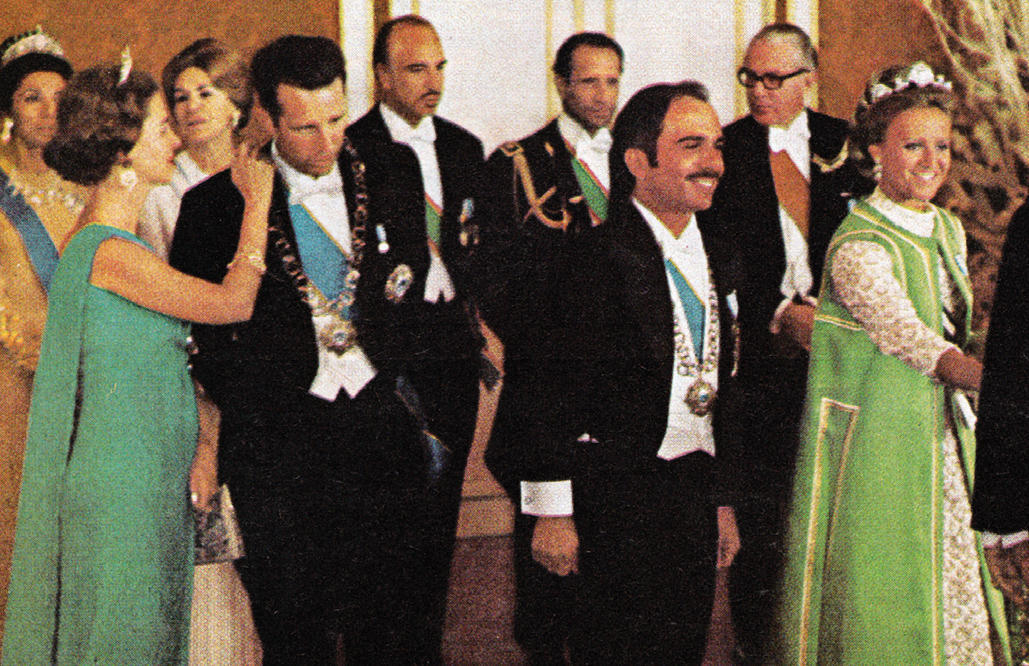
I doubt, globally speaking, that Muslims are especially known for their senses of humor. Self-effacement is an endearing art, but the world’s leading Muslim figures don’t really cut it when it comes to taking the rip out of themselves. That’s not to say that Muslims don’t preside over cultures steeped in levity and irreverence. Yet whereas Woody Allen and Jackie Mason have given us a loving and lovable paradigm of Jewish (neurotic) humor, Islam hasn’t managed — yet — to provide equally convincing, universally recognized personae who epitomize acknowledged traits of what one might call an “Islamic Humor Imaginary.” Yes, there is a new generation of Muslim standup comics, and this is a signifi cant evolution. We don’t need Freud to tell us about the liberating and revolutionary effects of laughter and humor on the individual and collective consciousness. It’s laugh-out-loud obvious.
This disquisition on whether Islam has funny bones or not is due to a newish Canadian TV program I stumbled across online during the recent month of Ramadan. (It’s true that I don’t extend the rules of Ramadan to the consumption of TV, even though many a hardliner might say Western TV is as corrupting a force as binge-boozing and garrulous gambling.)
Originally aired in January 2007, Little Mosque on the Prairie is a sitcom that (for all the best possible reasons) shouldn’t really work but, sneakily, really does. It originally garnered write-ups in the New York Times, months before actual transmission took place, and turned its hijab-wearing creator, Zarqa Nawaz, into something of a modern Muslim media-star in North America. Set in a provincial Canadian town, Mercy, the show follows the daily tribulations of a small, heterogeneous Muslim community whose spiritual home is a parish church they’ve colonized and made into their local mosque. This is no ghetto community. Their daytoday travails see them crisscrossing the paths of indigenous small-town Canadian non-Muslims — with their attendant bigotries and nervous, erratic political correctness — resulting in a series of plotlines that have included a campaign for an all-women’s swimming session and sex wars in the diminutive mosque over a proposed picketfence that would judiciously separate men and women during prayers.
So far, so not funny.
However, it’s the array of characters and the subtleties of their varied investments in what it means to be a Muslim in the West that marks it out as smarter, and braver, than anything I’ve seen before. In the first episode, a new imam arrives from Toronto to take over the spiritual running of the mosque. Amaar is an educated ex-lawyer in his thirties who is both good-looking and progressively minded. In fact, he is exactly the opposite of the classic image of an imam, an image held in both East and West. This doesn’t exempt him from police suspicions that he is of an Al Qaeda persuasion — there are certain fates that even good looks can’t save you from. I’ve often thought, during Khutbahs at the various mosques I’ve frequented over the years in Britain, from Blackpool to Cambridge to London, that until imams manage to reinvent themselves (and are allowed to reinvent themselves), the rest can’t follow. In this regard, Little Mosque makes an important political gesture that happens to be funny at the same time.
What I enjoyed the most (heightened perhaps during Ramadan’s month of personal privation) was seeing the deployment of hackneyed stereotypes (old school fanatic, reactionary alarmist, local radio DJ) and more intelligent and unusual character types (the daughter of a mixed-race marriage is a beautiful and devout Muslim who flies the flag of feminism without ever becoming a caricatural harpy, while her Caucasian-Canadian convert mother is seen to embody Islam with more principle than her opportunistic, wily Iranian husband).
In many ways, the content is familiar — generational rifts, fear of the Other — but what is original and, I maintain, originally funny, is that these plotlines are played out through the particular lens of contemporary Muslim issues that affect millions who have chosen (or not chosen) to live in the West. Humor can be a mirror that refl ects back disturbing truths about our own prejudices and predicaments and makes those truths easier to digest. I’m no funniness-scientist, and I can’t vouch that Little Mosque on the Prairie is the new Seinfeld, Friends, or Fraser, but here’s a genuine, modest yet important attempt to make Muslims the butt of their own jokes. It isn’t nihilistic anger or political disaffection fueling the humor, but an intelligent observational sensitivity that rightfully allies humor with being human, and being human with being Muslim.